The last ministers of the empire - Dmitry Shuvaev and Mikhail Belyaev
In a sense, the last two tsarist military ministers - generals Shuvaev and Belyaev - ended up in this post almost by accident. They also became hostages of the system that led the country in a straight line to February and October 1917.
After the coup and abdication of the emperor, these tsarist generals were replaced by the Octobrist Alexander Guchkov. We recall that he became the first hero of our series of essays on the military leaders of Russia in the era of wars and revolutions (Alexander Guchkov: the most "temporary" of the military ministers of Russia).
Dmitry Shuvaev - the fate of the intendant
The pedantic campaigner for the quartermaster, not too typical for that era, became the minister of war of the belligerent empire in many respects to his own surprise.
It's just that all the others were much worse, did not have such merit and such an impeccable reputation. And they did not suit Nicholas II, who only in August 1915 assumed the duties of the Supreme Commander-in-Chief.
The elderly, already 62-year-old Dmitry Savelyevich took a fancy to Emperor Nicholas at Headquarters, where from December 1915 he served as the chief field quartermaster. Shuvaev, whose personal honesty and incorruptibility was not doubted even by the Duma, not only established front-line supplies, but also practically saved Nicholas II, as the new commander-in-chief, from the tiresome contacts with the Zemstvo people headed by the future interim Prime Minister G.E. Lvov and him similar.
The then Minister of War A. A. Polivanov - assertive and too popular, more a politician than an organizer and business executive, did not like the sovereign, and he decided to change him to "old Shuvaev". No wonder that for a long time was at hand. Shuvaev managed to brilliantly arrange the supply of the Southwestern Front on the eve of the Brusilov breakthrough, for which he received a flattering description from the front commander in his memoirs.
Officially, he was not a nobleman or a hereditary military man - his ancestors were considered honorary citizens of Orenburg, most likely - Cossacks. So it was logical that the offspring was expected to study at the Neplyuevsk military gymnasium, and then at the Third, that is, the Moscow Alexandrovsky infantry school.
A graduate - a junior officer fought in Turkestan in the 2nd battery and after the Central Asian company entered the Nikolaev Academy of the General Staff, which he graduated only with the second grade. And immediately began to serve in the headquarters of the Orenburg military district.
From there, very young, he went to command military schools - first the Novocherkassk Cossack school, which once again confirms the Cossack origin of Shuvaev, and then the Kiev one. DS Shuvaev's long-term service was not marked by any special events; numerous memoirists did not seem to notice him even in general's posts.
In 1905, Shuvaev could have gone to war with the Japanese, but after receiving the rank of major general, he was appointed commander of the 5th Infantry Division, and then the 2nd Caucasian Corps.
General Shuvaev was already 54 years old when he headed the Main Quartermaster Directorate of the War Ministry, which was then headed by the notorious General VA Sukhomlinov. The scandals around this person, however, did not affect Shuvaev, which was noticed even by the emperor.
In the days of the World War, when difficulties with supply became almost self-evident, the commissary's management again turned out to be beyond criticism. Moreover, social activists, the same Zemstvo people, relied on D.S.Shuvaev. He was also appreciated by the then minister Polivanov, who hardly expected that he would be replaced by the chief intendant.
It is believed that it was he who practically eradicated corruption in the quartermaster department, and in the course of the far from indisputable military reform of 1905-1912, Shuvaev was credited with the fact that he was not afraid to admit civilian structures to military supplies. It is noteworthy that he initiated the creation of the Quartermaster Academy at the Academy of the General Staff.
Being one of the closest associates of the commander-in-chief in the world war, Emperor Nicholas, General Shuvaev was absolutely not shy about making huge military orders to the same Zemsky Union, getting applause in the press for this. Alas, this did not help to save the imperial army.
How did the same Brusilov breakthrough not save, about which it is now often expressed the opinion that it was he who undermined both the combat capability and the belief in victory of the Russian army. Nevertheless, the Duma speech of General of Infantry Shuvaev, delivered on November 4, 1916, is widely known, where he not only expressed confidence in the victory of Russia, but also cited impressive data on how the supply of the army had grown during the war years.
Again, it didn't help.
How did it not help DS Shuvaev to sit in the ministerial chair.
On January 3, 1917, Nicholas II unexpectedly replaced him with the nondescript and little-known General Belyaev. Having become a member of the State Council, and then the Military Council, the sharply aged Dmitry Savelyevich went into the shadows, began to write memoirs and theoretical works.
This did not save him from arrest after October 1917, as a former Tsarist minister. At that time, the Cheka, however, quickly figured out that the general was harmless, he was sent to work in his specialty as a military quartermaster in Petrograd, and then to the capital's military district, and later to the Shot courses to teach tactics.
The retired infantry general even became a personal pensioner, lived in Lipetsk, and already there fell under the flywheel of repression. 82-year-old Shuvaev was arrested in 1937 for anti-Soviet agitation and, most likely, on a denunciation. He had few friends, and apparently enough enemies.
The case against Shuvaev was apparently closed due to his advanced age and illness, but in December 1937 he was arrested again. For spreading defeatist sentiments and slandering the Soviet regime.
He was shot on December 19 of the accursed 1937. And fully rehabilitated only after 19 years, at the request of the youngest son Peter.
Mikhail Belyaev - his surname is too well known
Surprisingly, but it is the last Minister of War of the Empire, General of Infantry, Mikhail Belyaev, who remains one of the least known representatives of the glorious military family. So many celebrities came out of the noble family of the Belyaevs that to list their merits, you will have to write a separate essay, and most likely not one.
That is worth at least the unique career of his cousin Ivan, who became a Paraguayan divisional general after the World War and the Civil War. In the Chaki war with Bolivia, Ivan Belyaev rendered invaluable services to Paraguay, and the future dictator Stroessner fought under his leadership.
His father was also a general, but Mikhail Alekseevich was definitely not the general's son - he took the main steps in his career before his father became a general. After the classical St. Petersburg gymnasium - the Third on Gagarinskaya Street, he graduated from the Mikhailovsky Artillery School.
He served, starting with the second lieutenant, in the divisional artillery brigade, twice, for the sake of qualification, ended up in the Izmailovsky Life Guards regiment - a company commander, then a battalion. He also graduated from the Nikolaev Academy of the General Staff - unlike his predecessor Shuvaev, in the first category, and only five years later, although he was nine years younger than Shuvaev.
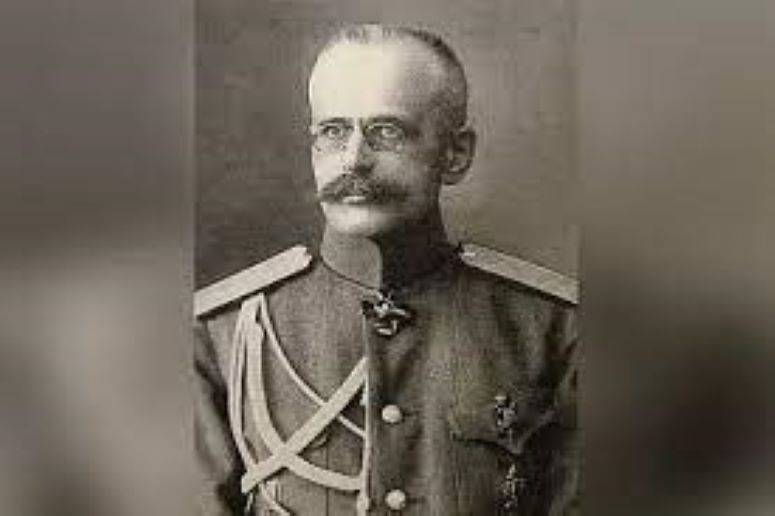
In the main headquarters - for the post of chief of a department, already a general, he got after almost a year in command of a battalion among the Izmailovites, and then fought in the Russo-Japanese War.
With its beginning, General Ya. G. Zhilinsky, the former second quartermaster general of the General Staff, took Lieutenant Colonel Belyaev with him.
General Zhilinsky was appointed chief of staff from the Far Eastern governor, Admiral E. I. Alekseev. And Belyaev, despite the fact that he remained a staff officer, received the rank of colonel, and was officially listed as a field treasurer.
Nevertheless, he managed to show himself in several battles at once. For military distinctions in the capture of Ui-Yan-nim, in the battle at the Japanese positions at Bensihu and at the pass near the village of Gaolingzi, he was awarded a gold weapons.
However, Belyaev had to wait until 1908 for the production of major generals. He first served, and in 1909 received the post of Quartermaster General of the General Staff. The next general's rank did not have to wait so long - Belyaev became Lieutenant General in 1912. He became a general from infantry even a little over a year later - in 1914.
During the First World War, since August 1914, Mikhail Belyaev was acting chief of the main directorate of the General Staff, its actual head. At the same time, Belyaev also had to take the place of Assistant Minister of War - Polivanov.
The general was responsible for preparing reinforcements, providing troops with weapons, as well as military-diplomatic work. In August 1916, when Nicholas II replaced Polivanov with Shuvaev, General Belyaev, who was not inclined to compromise, although, according to the testimony of his contemporaries, personally devoted to Nicholas II, was pushed into the Military Council.
From there, in September, they hurried to send him to the Romanian front - the representative of the Russian army at the Romanian headquarters. However, the emperor for some reason became disillusioned with the "old man Shuvaev", and already on January 3, 1917, he appointed Mikhail Alekseevich Belyaev as Minister of War. There were very well-grounded rumors that Empress Alexandra Feodorovna was personally working for Belyaev.
The commanders of the fronts and armies did not understand this designation - if they at least reckoned with Shuvaev, then Belyaev did not seem to be seen at close range. Even such an unbiased observer as the army protopresbyter, Father Georgy Shavelsky, believed that "Belyaev was definitely not suitable for a minister."
The minister, however, is not the commander-in-chief or even his chief of staff, but in fact is the organizer of a normal life for the army, and in just two months in this post, Belyaev simply did not have time to do anything concrete.
The February revolution, as one might expect, freed General Belyaev from the duties of a minister - it was the Octobrist-Dumaist Alexander Guchkov, who was hated by Nicholas II. However, the outgoing minister still managed to distinguish himself by ordering the commander of the Petrograd military district, General S. S. Khabalov, to declare the capital on martial law.
The minister these days bombarded the Chief of Staff of the Supreme Commander, General MV Alekseev, with telegrams demanding that troops be sent from "really reliable units ... in sufficient numbers." He tried to take decisive measures against the reservists from the Pavlovsky Life Guards regiment that had gone over to the side of the rebels. He also managed to destroy the secret documents of the military department.
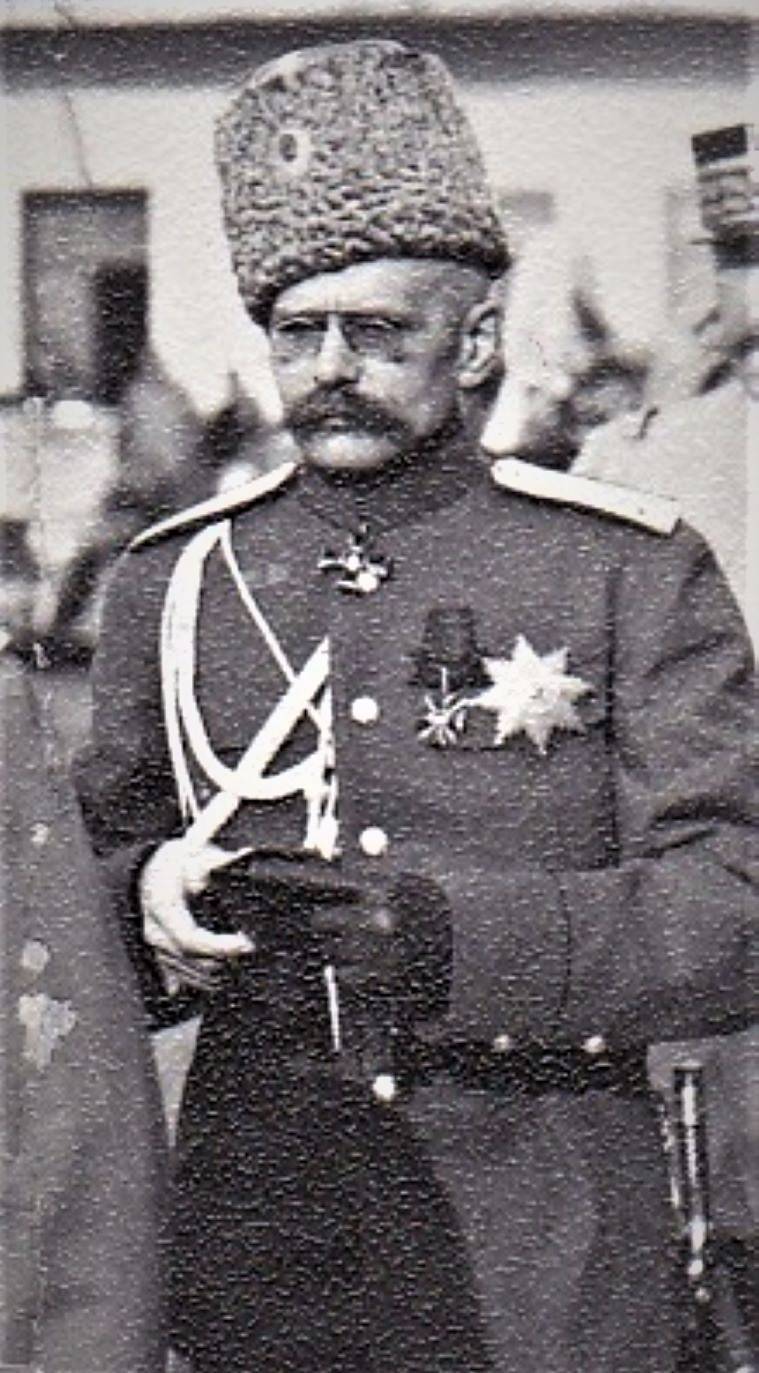
General Belyaev was arrested immediately after his release from the post of minister - on March 14, 1917. Then he was released, in July he was again arrested and kept in the Trubetskoy bastion of Petropavlovka.
After interrogations by the Extraordinary Investigative Commission of the Provisional Government, the former minister was brought to trial. However, after the October victory of the Bolsheviks, they were released again. Belyaev retired from active affairs, but nevertheless, in 1918, the Cheka was accused of anti-Soviet activities and was shot in September.
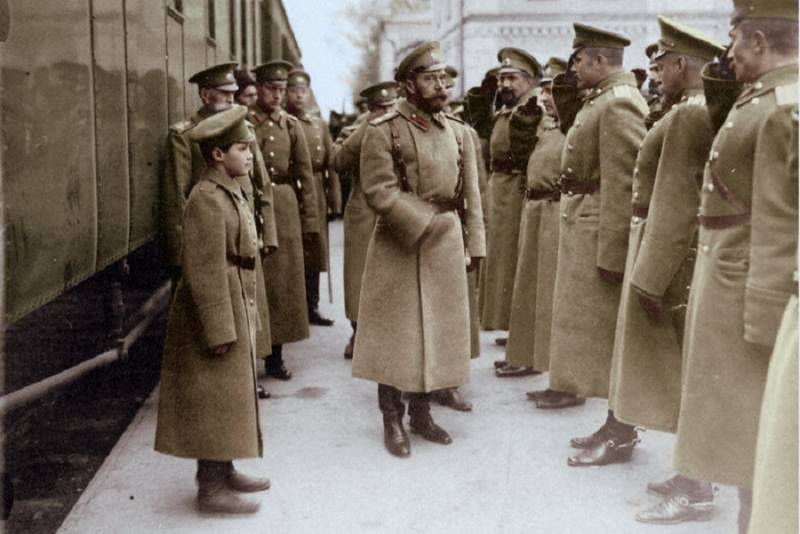
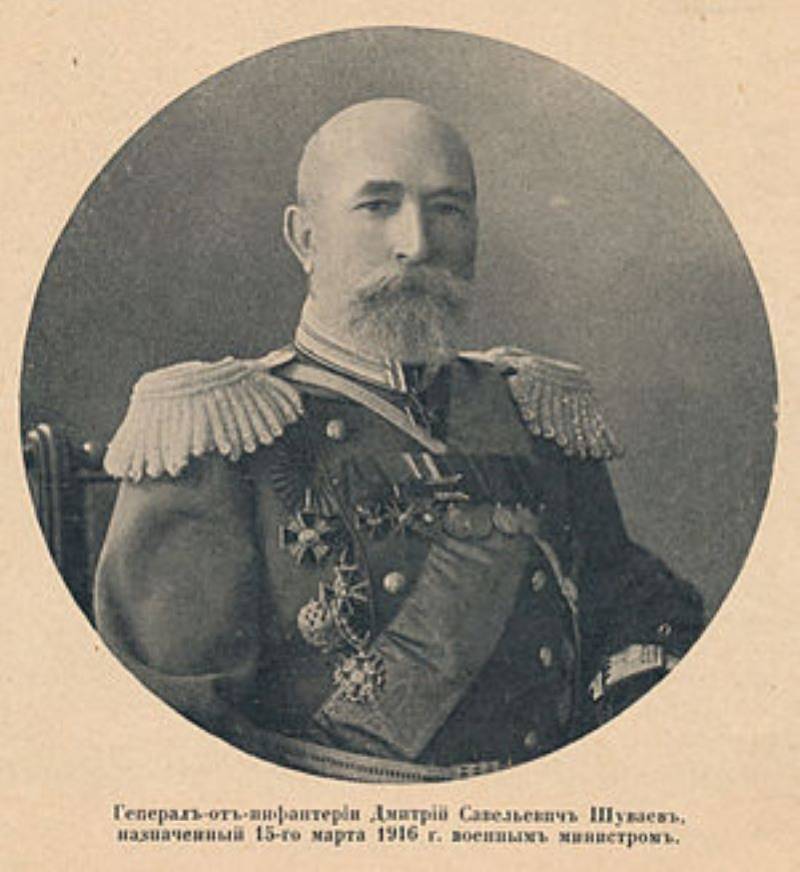
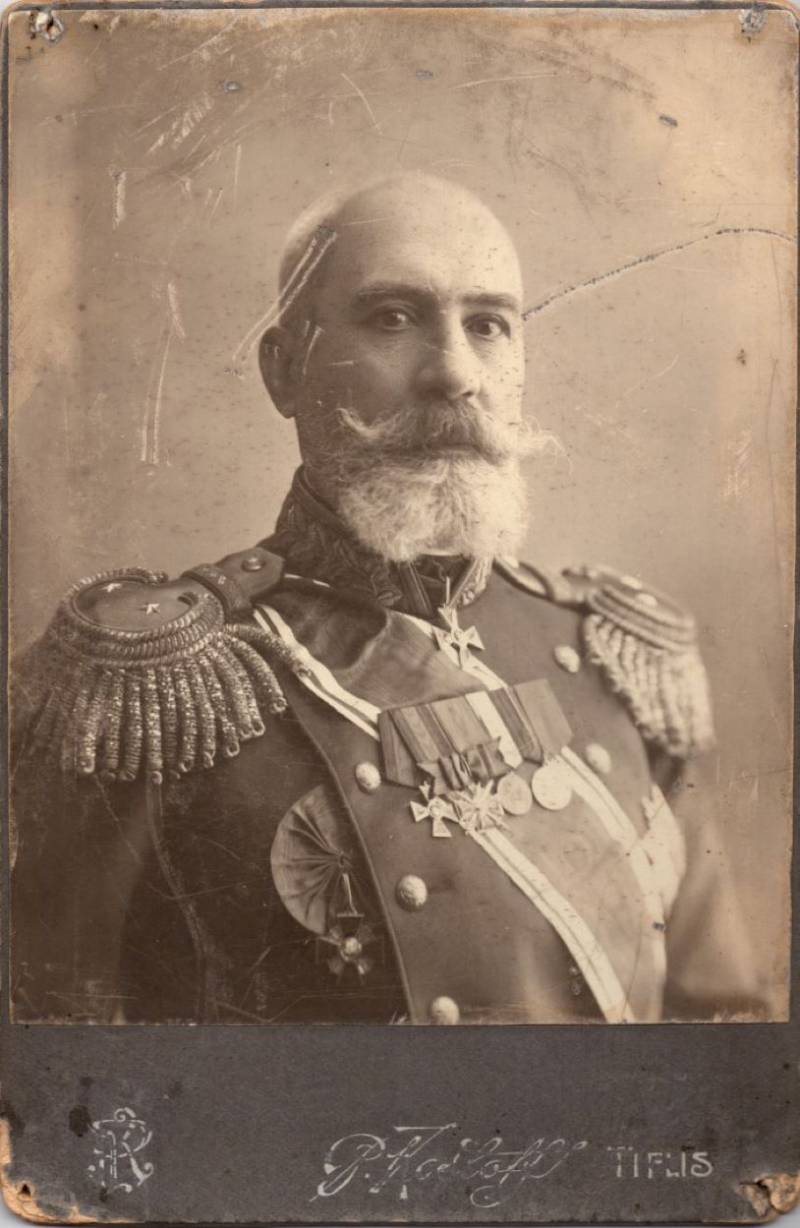
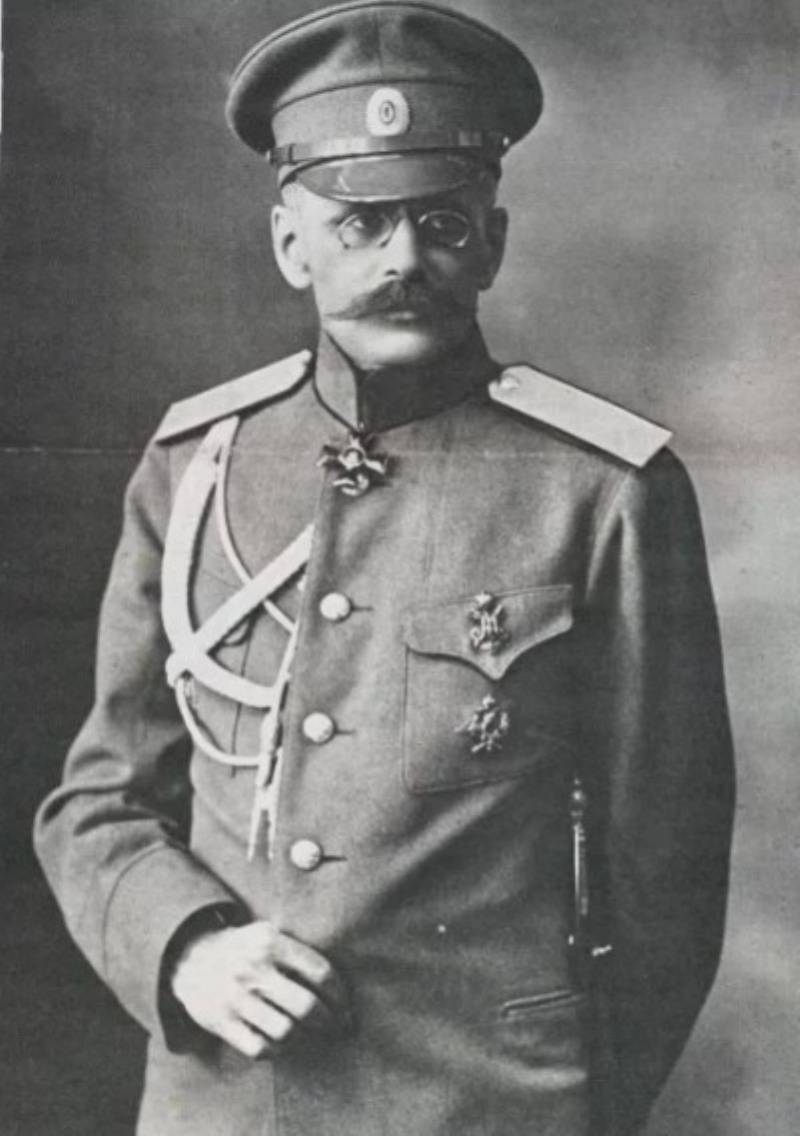
Information